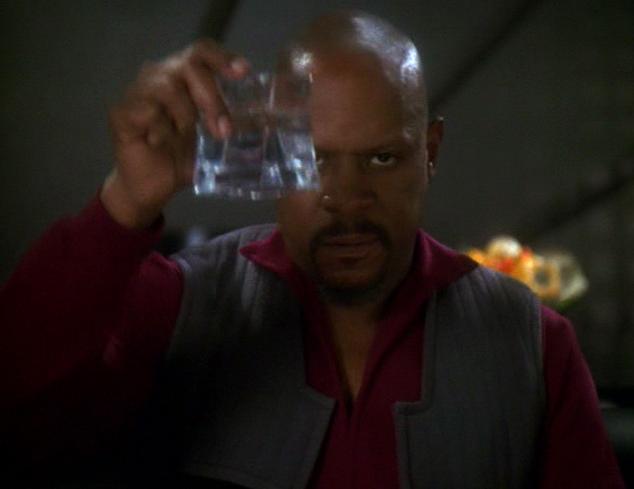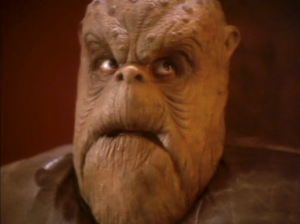Sometime last decade I embarked on a project to read all Hugo Award-winning novels. I thought I would get done around 2011. I was only off by eight years.
Not that it’s an especially long list—about 70, depending on how you count them—but I certainly wasn’t reading only off the list until completion. I sprinkled them into the regular flow. Only sometimes the flow wouldn’t drift back to the list for months at a time. I’d vaguely acknowledge that I’d read most of them and as I’m only in my early 40s I still (probably) have plenty of time to finish before I die. So progress was slow and intermittent until finally in the last few months I made the final push to pick off the last few.
What’s on the list?
- Mega list of Hugo winners (generously copied from Wikipedia) with my Goodreads ratings and tiers
- Goodreads Hugo winners bookshelf
In the end I thought it was useful to assign the ones I’ve read to tiers:
- Classics – everyone (not just SF people) should read.
- Important/Zeitgeisty books – ones SF readers should know; these would fit into an SF class curriculum.
- Great SF books – solid recommendations.
- Fine for SF fans but not vital.
- Skip it – doesn’t mean it’s bad (but they might be), just not that important to the genre. Take ’em or leave ’em.
So: Are you finally done?
Not quite. But close enough to draw some final conclusions. At the moment I’m in the middle of Fritz Leiber’s The Wanderer, and after that, I’ll have just two to go: John Brunner’s Stand on Zanzibar and Ann Leckie’s Ancillary Justice. I’ll take care of both over the next few months.
I’ve only read a fraction of all the total nominees. If I really wanted this project to count, I’m not even close to done.
But you’ve officially read every other Hugo winner?
Well, uh, no.
TLDR answer: I gave them all a fair shot but this was supposed to be an enjoyable project, and it turned out that sometimes it wasn’t, so I made peace with not being a completist.
Specifically, I didn’t finish (or sometimes even start) these:
- Downbelow Station, CJ Cherryh, 1982
- Startide Rising, David Brin, 1984
- The Uplift War, David Brin, 1988
- Cyteen, CJ Cherryh, 1989
- Mirror Dance, Lois McMaster Bujold, 1995
- Blue Mars, Kim Stanley Robinson, 1997
- Paladin of Souls, Lois McMaster Bujold, 2004
Somewhere along the way I accepted that I wasn’t going to truly read every single Hugo winner. Some just aren’t that good. Or maybe they are objectively good, but they just aren’t my thing. Lois McMaster Bujold’s books played some part in that. She’s won four Hugos, and I read two, plus another in the same series, and found them consistently mediocre. I still faced two more, one a part of a totally different series, meaning I probably had to commit to other series books too, and….I just didn’t wanna.
Brin’s and Robinson’s books both have the problems that they are parts of series, and the series aren’t that great. I started and bailed on Startide Rising, which was disappointing; I actually quite liked the first book in the Uplift series (Sundiver, not a Hugo winner). But Startide Rising was terrible and it was a pure slog to make it even as far as I did. I had no interest in finishing it, so I definitely didn’t want to read another book in the series on top of that. Blue Mars is the most likely one from this list that I’ll eventually read, but similarly, I’d have to overcome predecessors I didn’t like first. Red Mars was the first in the series, and pretty good, but I got completely bogged down in the sequel, Green Mars. I’d have to re-read them both to get back to Blue. Maybe in the unlikely event I can retire at 50 and suddenly find myself with an abundance of free time.
The Cherryh books are hugely long complex books about fictional politics, which for me means they are hugely long complex books I won’t read. I obeyed the “read 100 minus my age” pages rule and dutifully returned them to the library unfinished.
(Also worth mentioning that there are three Retro Hugo winners I haven’t read but I don’t feel like they are required.)
Ann Leckie’s book came out since you started the project so it’s understandable that it’s still on the shelf. Which means Stand on Zanzibar will be your last classic winner standing. Why that one?
Mostly it gets the honor because I think it occupied a medium-hanging-fruit niche that made it seem neither especially vital nor bad. Also it’s long, and I don’t know anything about John Brunner. Ironically I happened across a used copy of it years ago so it’s been sitting on a shelf behind me, unread, for probably at least a decade. It sounds good, and has a good reputation, so I haven’t been specifically avoiding it. But it kept getting skipped because I didn’t know that I wanted to wade into its 650 pages just yet. I’d either go for lower-hanging fruit of shorter books by known authors, or try to knock off one of the oddball ’70s winners with mixed reviews, or embarrassing ’50s schlock first. At some point Brunner’s was the last one with a strong reputation left in the pile, so I saved it for the end.
Was this a worthwhile project? Do you think SF fans should read all the Hugo winners?
Nah. Some of them really just aren’t that great. I gave them an average rating of 3.7 out of 5 on Goodreads, compared to my overall average of 3.9. Maybe that should be expected. I generally pick books I’ll probably like and the hit rate is bound to be better than any curated list, where I will sometimes have a different opinion. Especially since some of the entries on that list are known to have been poor choices. So here’s the part where I wonder if this was even worth it. By comparison I’ve read 15 of the Modern Library Top 100 with an average rating of 4.3. Not much data but probably enough to conclude I should have spent the last ten years reading those instead. If I had unlimited time I could read through a bunch of lists and gather similar data. That would be really interesting if I was going to be alive for 1000 years. I’ll probably have to settle for incomplete data.
Anyway no list is definitive and I already did the Hugos so I may as well wrap this up. I picked the Hugos fairly arbitrarily over the Nebulas, and I can think of at least three other SF awards. Based on the results here though I’m probably not going to bother with the other lists. Like any yearly award, the Hugos probably capture some zeitgeist, but (especially in retrospect) many years they didn’t pick the best book, and some years there were several good books and only one could win. Years are arbitrary end points.
Final conclusions, especially for readers who’ve skipped to the end of this rambling write-up?
- Working through lists of books (or movies, albums, restaurants) is fun, but don’t be a slave to them. I’m glad I read most of these but some of the best decisions I made were the omissions.
- Yearly lists that try to capture the most important thing that happened without the benefit of historical hindsight probably miss at least as often as they hit.
- It was worth it, but in the end, not as informative as maybe I’d hoped. I read authors I might have otherwise missed, but I’m still lacking in some important SF work. And I definitely should have skipped some of the predictably mediocre Hugo winners in favor of, say, Pulitzer winners.



